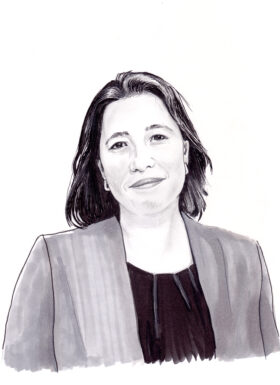-
Ammodo Science
Award for groundbreaking research2024 -
Ammodo Science Award
The Ammodo Science Award for groundbreaking research is intended to stimulate potentially groundbreaking research. Such research is usually the result of team work, and for that reason this Award is for research being carried out by a group of researchers working together, and is intended to recognise the contribution of every member of the group. The Award is presented every two years in four scientific domains: Biomedical Sciences, Humanities, Natural Sciences and Social Sciences.
-
Nomination & Selection
Each edition, the Ammodo Science Award for groundbreaking research includes a cash prize of 1,600,000 euros for each of the science domains Natural Sciences and Biomedical Sciences and a cash prize of 800,000 euros for each of the science domains Humanities and Social Sciences. The rectors of the fourteen Dutch universities affiliated to Universities of The Netherlands (UNL) may nominate a maximum of one research project per scientific domain.
-
Winners
The Ammodo Science Award for groundbreaking research focuses on potentially groundbreaking research and ensures that all researchers involved in the winning project are recognised and rewarded.
Tazuko van Berkel
Laureate Humanities 2023

Tazuko van Berkel (1979) studied Greek and Latin Language and Culture and Philosophy at Leiden University, where she also obtained her PhD cum laude in 2012 and where she has been an associate professor of Greek language and literature since 2017. Her research focuses on self-image, humanity and worldview among ancient Greeks. Van Berkel is currently leading a research project on the history of economic thought in ancient Greece. In her recent book The Economics of Friendship (2020), she describes ancient theories of friendship and their relationship to emerging market thinking.
Van Berkel joined The Young Academy in 2021. She previously won a Veni and Vidi grant from NWO. Her thesis was awarded the five-yearly science prize of the Legatum Stolpianum for the ethical impact of the research.
WebsiteResearch focus
Tazuko van Berkel researches self-image, humanity, and worldview in classical Greek society. She is currently focusing on economic thinking in ancient Greece.
The ancient Greeks as a mirror
Tazuko van Berkel’s extraordinary work confirms for us that the ancient Greeks can still be of great value to us today in studying self-image, humanity and worldview and the development of economic thinking in particular. How was the economic domain defined in antiquity, not only by scholars, but also in the everyday views of citizens? Van Berkel shows that economics and ethics were strongly intertwined in ancient Greece. In doing so, her research invites critical reflection on economic thinking in our own time: is homo economicus a natural construct? And is unlimited growth compatible with the good life?
What is groundbreaking about her work is that van Berkel radically expands the conception of what is relevant in the history of economic thought. Historians often focus on contemporary issues such as inflation, and then conclude that the ancient Greeks knew little about the law of supply and demand. Van Berkel shows that studying such technical issues is too narrow an approach. Indeed, the ancient Greeks explicitly linked economic issues to philosophical ideas about the meaning and purpose of life. She therefore advocates linking the history of economic thought to fundamental questions about human nature, rationality, freedom and individuality.
Economics, according to van Berkel, is about worldviews, values and on what it means to be human. In other words, it is about relationships between people. Her research into how the advent of a monetary economy affected the Greek idea of friendship is one example of this. The introduction of money and barter increased the need for ancient Greeks to establish space for relationships where economics did not play a role. The ancient conception of friendship as mutual solidarity disappeared and a new understanding of friendship emerged in which the emotional aspects were emphasised: the intentions, the expectations, the feelings. Van Berkel showed that this change forms the basis of our modern idea of friendship.
Van Berkel is known as a creative researcher who always seeks to apply new ways of looking at things. Recently, she collaborated with cognitive scientists and social psychologists in research on the emotions in classical antiquity. She also plays an active role as a pioneer of Digital Humanities, in particular by developing new methods for digitally annotating fragmentary texts.
In the near future, van Berkel plans to delve into ecological perspectives on economics in ancient times. For example, how did the ancient Greeks think about farming and how did their worldview influence the way they interacted with nature? Van Berkel argues it is only when we understand the history of our own thinking that we can challenge our contemporary views.